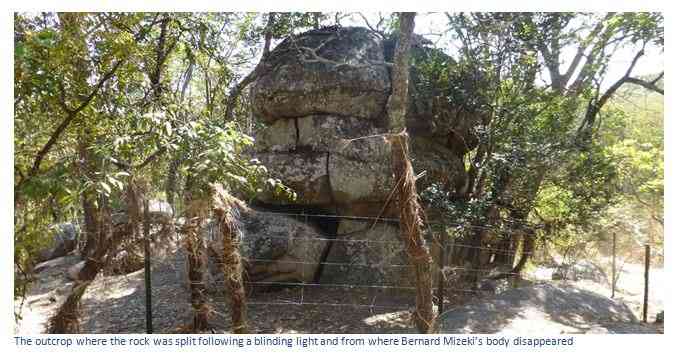
IT is that time of that time of the year when, upon seeing an influx of Anglican Church members making their pilgrimage to the Bernard Mizeki shrine in central Marondera, local residents know the coming weekend will be super cold.
In this farming town, the commemorations are defined by the myth surrounding the sudden weather patterns.
For years, according to residents, the coldest weekend in Marondera is during the Bernard Mizeki commemorations, and that has given rise to the belief among the superstitious that he was, indeed, a holy man.
This year, the main day of the commemoration was on June 17, but alas the weather seemed to have forgotten about it.
There were clear skies, and by 10am, the temperatures rose sharply, contrary to what residents are used to experiencing during the pilgrimage.
In short, it was a hot day that drew lots of debate among residents, even on social media groups.
“Bernard Mizeki apera manje, zuva kupisa kudai munaJune (The myth of Bernard Mizeki is cracked now, how could we have such hot temperatures in June)?” said a visibly drunk young man at a bar in central Marondera.
His observations rhyme with that of many who believe in the myth that the event is associated with the chilly weather, ignoring natural weather patterns.
- Top civil servants sign performance contracts
- Church of England apologizes for links to slavery
- ED divides Anglican Church
- Bernard Mizeki pilgrimage roars to life
Keep Reading
For the past five years, the Mizeki weekends have seen rather warm temperatures, as observed by this publication.
In yesteryears during the commemorations, Marondera area would have its lowest temperatures and often misty.
Geographically, the town sits atop one of the highest points in the country, making it one of the coldest in the land. It is also nicknamed Zimbabwe’s little London.
A former church member and Marondera resident, Dean Emmanuel, said the “myth” seemed to have disappeared.
“We grew up believing that it was a myth. Sometime in 2014, someone said this has to stop (myth) and if you look that in recent years, it hasn’t been the same as far as low temperatures during the commemorations are concerned.
“But scientifically, the church seems to choose the coldest days in the winter season for the gathering,” Emmanuel said.
Marondera Youth Forum chairperson Donovan Makuzo (32) said the myth was a fallacy.
“I disagree with the myth. These commemorations happen in the same period that winter solstice occurs in the southern hemisphere, which alone is a possible reason for a colder weather,” Makuzo said.
“As you may have noticed, the past years have been quite warmer during the same commemoration period probably because of the global warming effects. If it was truly about Mizeki, the current changes to climate wouldn’t have affected his days’ temperatures.”
Climate change expert Moses Tinarwo said the warm temperatures in the winter season are because of changing weather patterns triggered by global warming.
Mizeki was born in 1861 as Mamiyeri Mitseka Gwambe in Inhambane, Mozambique.
He was sent to minister in the then Marandellas (now Marondera) district among the Nhowe people in the Mangwende Mungati kraal.
He married Mutwa, a granddaughter of the Mangwende and a Christian convert, in March 1896.
Disaster, however, struck on the cold night of June 18, 1896, when he was dragged from his home and stabbed by his in-laws. Mutwa is said to have found him battling for his life and rushed to call for help.
But as she returned where she had left him, she and the other people with her are said to have seen a great white light all over the place where he lay and heard a loud noise “like many wings of great birds”.
When the light eventually disappeared, the body seemed to have disappeared along with it.
Today, nature seemed to have forgotten to mourn the great missionary as climate change moves in to solve the mystery. So, the question still remains: has Bernard Mizeki lost his myth?










